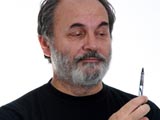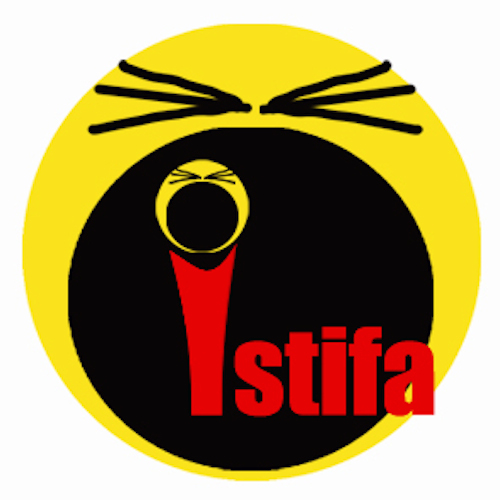ISIS, Massacre, and Censorship in Turkey
by Tarık Günersel / October 19, 2015 / No comments
Media crackdowns in the wake of the bombing in Ankara, Turkey prohibited the distribution of information about the attack.
The (illegally) Erdoğan-led AK Party government has banned publications detailing the ISIS suicide bombing in Ankara. Lawyers and democratic media protested against the prohibition. Newspapers such as Aydınlık, BirGün, Cumhuriyet, Hürriyet and Sözcü refused to abide by the ban, which was lifted on October 19, 2015.

- Life is words in action, literature is action in words.
- Humans are about to destroy their spaceship Earth. Some of them are aware of this and they try to change the course of events. Will they succeed? Will more humans be alarmed and do something?
- Literature is vital and translators are messengers of world peace.
- Though I shall focus on the literary scene in Turkey and its problems regarding freedom of expression, I shall not omit the other parts of our planet. Today local is global and vice versa.

- Poet, playwright, actor, and director Tarık Günersel worked at Istanbul City Theater as a dramaturg.
- His works include Breaths of Infinity (a mosaic of poems) and My 300th Birthday Speech (short stories). His Becoming consists of his aphorisms and various ideas from world wisdom.
- His plays include Billennium, Nero and Agrippina, Sociology of Shit, Threat and Virtually Yours. He has written four libretti for the composer Selman Ada: Ali Baba & 40, Blue Dot, Forbidden Love, and Another Planet. His translations into Turkish include works by Arthur Miller, Samuel Beckett, Vaclav Havel and Savyon Liebrecht. His presentation of World Poetry Day to PEN International in 1997 led to its adoption by UNESCO. As the former president of PEN Turkey Center he was elected to PEN International Board in Tokyo from 2010 to 2012. In 2013 he initiated the Earth Civilization Project with the collaboration of several intellectuals from around the planet.
The bombing took place on October 10, 2015 in the middle of the Peace Meeting, killing 102 people and wounding hundreds of others. The Peace Meeting, organized by union groups and the opposition Peoples’ Democratic Party (HDP), sought to find a peaceful solution to the crises in Turkey. Twenty people were in a critical condition at the time of writing this article — there were also children among these “peace martyrs.” Protests broke out across the country in the aftermath, and dozens of condolences were sent from all over the world.
The HDP said they might discontinue their meetings, as they could not trust the government’s security authorities to provide adequate protection.
The bombing harmed no police officers. Yet, fifteen minutes after the blast, policemen used tear gas against the crowd, possibly leading to additional deaths.
The day after the attack, the government stated that there had been no weakness regarding security measures at the rally. When a journalist asked the gathered ministers whether anyone would resign, the Minister of Justice simply smiled — leading to further protests.
A long-time advocate of Erdoğan, journalist Mehmet Barlas said on Turkish TV: “Such things do happen in the Middle East, and we are part of the same geography.” Barlas encountered backlash from these comments, including on social media. “People like you [Barlas] turned us into a Middle East country!” commented one of my Facebook friends.
Most people in Turkey accuse President Erdoğan and the AK Party government of being permissive towards ISIS, which has continued organizing in Turkey.
Erdoğan, who spoke five days after the massacre, said security precautions should have been better. He added that whoever criticizes him on this issue would be siding with the terrorists.
How?!
Prime Minister Ahmet Davutoğlu said, “Though we have a list of suspected suicide bombers, we cannot arrest them before the action.”
The main opposition leader Mr Kemal Kılıçdaroğlu responded, “How can you arrest a suicide bomber after an action?!”
The father of one of the bombers weighed in as well: “My son had been to Syria. I was suspicious of him and warned the police. They detained him but soon freed him despite my protest!”
Attackers released
This is not the first time the police failed to act on threats of violence. In September, four men attacked Ahmet Hakan, the leading columnist of Hürriyet Daily, in front of his home. Previously, he had received open warnings and threats, and officially asked the authorities to provide bodyguards. Yet the police did not reply for 17 days — until the attack! The attackers, three of whom were members of the ruling AK Party, fractured Ahmet Hakan’s nose and some of his ribs. Police caught and detained all four men, yet only one was arrested and the others released. Having been hospitalized, Ahmet Hakan protested against the release of the attackers, whose trial process had begun.
The Judiciary is hardly trustworthy
The referendum passed in 2010, which combined 26 constitutional amendments in one act, favored the ruling AK Party. Two of these amendments dangerously affected the judiciary, and now we see the results. The government increased its pressures and manipulation of the judiciary system to further their own goals.
7 TV channels illegally off air!
Though there is no court order, the private TV company Digiturk discontinued the broadcast of seven TV channels related to the Fethullah Gülen movement, a modern, pacifist Muslim movement.
Kılıçdaroğlu, the leader of the opposition Republican Peoples’ Party (CHP), invited people to stop using Digiturk.
Digiturk never gave the leftist Ulusal Kanal (National Channel) TV the opportunity to broadcast, and so it would be fair to state that Digiturk censored Ulusal Kanal right from the start.
National Mourning with pro-ISIS noise
After the Peace Meeting massacre, and upon the proposal of Mr. Kılıçdaroğlu, the government enacted three days of national mourning. There was a minute of silence before the start of the national soccer match in Konya. Unfortunately, during that silence, some people in the crowd shouted words voicing their approval of the attack.
Journalist Uğur Dündar sentenced to one year
Uğur Dündar is a well-known columnist for Sözcü Daily. The government sentenced Dündar to a year’s imprisonment for “insulting the President.” Authorities have convicted more than 200 people, some of them journalists, of the same sort of “crime.” Lawyers say such accusations are unconstitutional to begin with.
Escaping?
Erdoğan’s son, Bilal Erdoğan, bought and moved to a home in Bologna, Italy, raising questions regarding a possible escape plan for the Erdoğan family.
Re-election on November 1
Dissatisfied with the general elections on June 7, 2015 Erdoğan denied the opposition leader Kemal Kılıçdaroğlu the opportunity to form a coalition government. He instead ordered an early election, or rather a re-election. Contrary to Erdoğan’s intention, the suspicious escalation of chaos and violence will not lead to the exclusion of the HDP from parliament.
A keen enemy of Atatürk and his secularist modernization project in the 1920s and ‘30s, Erdoğan is afraid that “his” AK Party won’t be able to win enough votes to form a single-party government. He and his close circle seem to be trying to postpone the general election on November 1 with heavy-handed scare tactics so that they can continue to rule as they wish.





